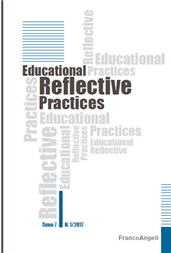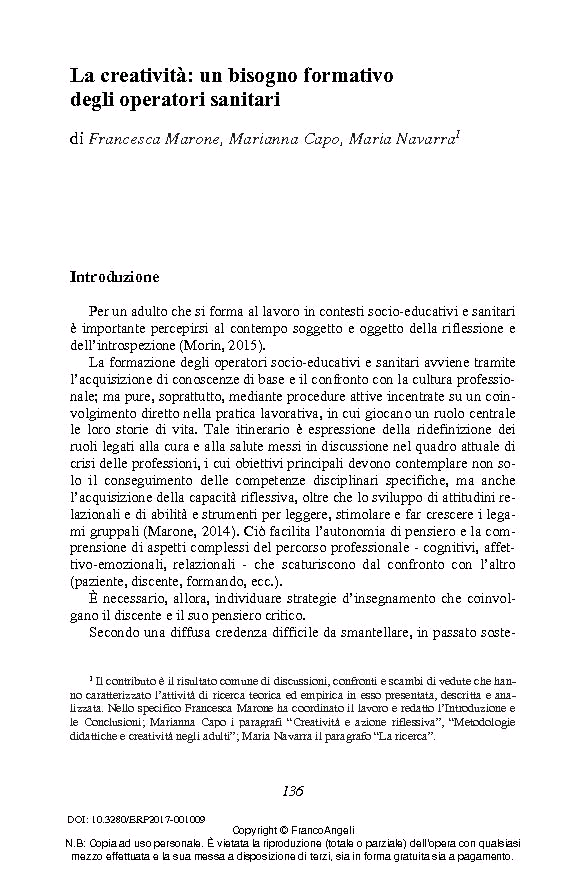La creatività : un bisogno formativo degli operatori sanitari
136-150 p.
Creativity has a transversal value; it is a process that in an unpredictable and original unifies a subject and a context, a form and an idea. It concerns to transformative, innovative and associative actions (Mezirow, 2003). It is not represented as the ability to create out of nothing but rather as the ability to transform the existing in an innovative way, by manipulating a function of a real or practical goal by identifying the elements that go beyond its immediate appearances or meanings. The aim of this study was to study creativity with regard to the professional adult education. Furthermore, the research focuses on the relationship between reflexivity and creativity. The variety of educational situations in which adult individuals may find themselves and which involve, to be such, some "change", are inherently creative and into adulthood many growth experiences are accomplished "in selfmanaged forms.".
In this sense the multiplicity of the notion of creativity, intersects with the complexity of the notion of change in adulthood. So creativity does not imply the necessary presence of intentional paths but are sufficient experiences that, together with a reflection in the course and on the course of action (Schon, 1987), give rise to creative and transformative situations. Specifically, here we present the results of a study that had the aim of identifying, through a questionnaire, the needs of trainers in health care throughout Italy. The exploratory study involved 179 trainers, who works and lives in two geographic areas (North Italy / South Italy); the data were analyzed by SPSS software for counting the frequencies and the calculation of the chi-square.
The following research question was explored: "what are the teaching methods which would deepen or consider relevant to own background?". The analysis showed that the training methods, as part of continuing medical education, are deemed inadequate to learning needs of individuals; An adult training can enable the restructuring of a perspective of meaning, understood as creative inversion process, through which we become critically aware of what influences the way we perceive and interpret the world, takes place where the educational planning assumes a not rigidly structured configuration. The aim is to reach a new andragogical methodology that, starting from needs and desires, intercepts the training of professionals (Knowles, 1985, 1989). [Publisher's Text].
Fait partie de
Educational reflective practices : 1, 2017-
Articles du même numéro (disponibles individuellement)
-
Informations
Code DOI : 10.3280/ERP2017-001009
ISSN: 2279-9605
DISCIPLINES



